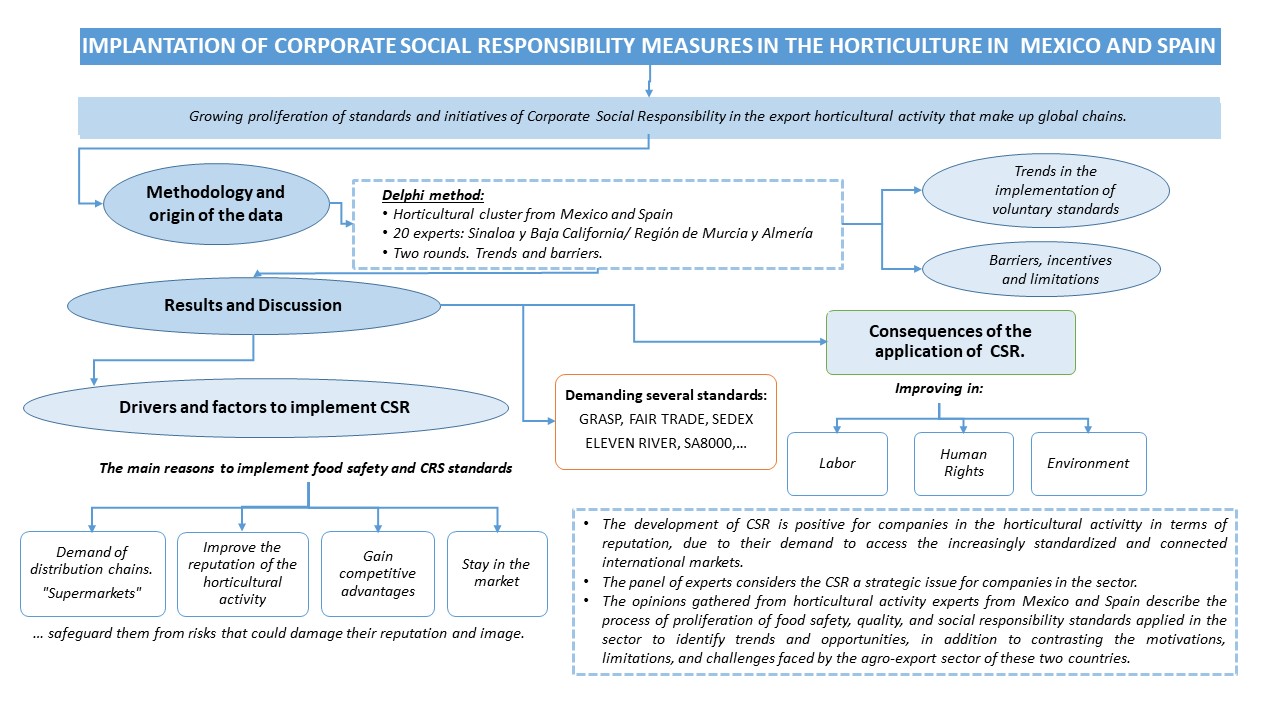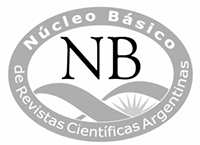Implantation of corporate social responsibility measures in the horticulture in Mexico and Spain
DOI:
https://doi.org/10.48162/rev.39.050Keywords:
Corporate Social Responsibility, Standards, Horticulture, Delphi, Mexico, SpainAbstract
This work presents the results of a survey, following the Delphi methodology, to experts from the horticultural sector of Mexico and Spain. Interactions with experts have made it possible to identify relevant aspects where the level of consensus is high about the proliferation of Corporate Social Responsibility (CSR) initiatives in the export sector of both countries, standing out: the horticultural sector's leadership in the implementation of standards, which responds to the demand for destination supermarkets in the US and Europe, which despite their particularities, have similar dynamics. Not implementing is considered a risk factor; the implementations are positive actions, which enhance the reputation of companies. Agricultural companies that have a lack of business culture, ignorance, and high administrative burden limit their development, especially among smaller production companies. The greatest progress has been made in the area of labor and environmental practices, areas where consumer concern is growing. Despite CRS initiatives are not providing an immediate benefit to companies, strategic spending is valued. The research is completed with a SWOT analysis (Weaknesses, Threats, Strengths and Opportunities), providing a valuable ranking of great interest for the design of competitive improvements.
Highlights
- Corporate Social Responsibility (CRS) measures in the horticultural activity are driven mainly for the Supermarkets Chains. There are other factors to implement it: gain competitive advantage, improve the reputation of the sector, stay in the market.
- The Delphi Method is a useful instrument to identify advantages, limitations, and barriers to adopt food safety and Social Responsibility Standards in the global value chain in the agricultural sector.
- The horticultural activity is adopting several CRS standards in order to stay in the market such as: GRASP, FAIR TRADE, SEDEX, SA 8000.
- The Delphi Panel considers that the CRS standards and measures implemented improve the labor, environmental and human rights in the horticultural activity in Mexico and Spain.
Downloads

Downloads
Published
How to Cite
Issue
Section
License
Copyright (c) 2018 Revista de la Facultad de Ciencias Agrarias UNCuyo

This work is licensed under a Creative Commons Attribution-NonCommercial-ShareAlike 3.0 Unported License.
Aquellos autores/as que tengan publicaciones con esta revista, aceptan las Políticas Editoriales.











.jpg)




